Employee Performance Feedback: Positive
Subject: Acknowledging Outstanding Performance
Dear [Employee's Name],
I wanted to take a moment to commend you on your exceptional performance. Your dedication, enthusiasm, and hard work have not gone unnoticed. Your contributions have positively impacted our team and the company as a whole. Keep up the fantastic work!
Sincerely,
[Your Name]
[Your Title]
Customer Service Feedback: Positive
Subject: Outstanding Customer Service
Dear [Employee's Name],
I wanted to express my gratitude for the exceptional customer service you provided. Your attentiveness, patience, and problem-solving skills made a significant difference in our experience. You truly went above and beyond, and it did not go unnoticed.
Thank you,
[Your Name]
Product Feedback: Positive
Subject: Praise for Your Product
Dear [Product Team],
I wanted to express my satisfaction with [Product Name]. It exceeded my expectations in terms of quality and functionality. Your team's dedication to innovation is evident, and I'm excited to see what you create next.
Keep up the great work!
Sincerely,
[A Satisfied Customer]
Product Feedback: Suggestions
Subject: Product Enhancement Ideas
Hello [Product Team],
I've been using [Product Name] and wanted to share some ideas for improvement. These suggestions are intended to enhance the user experience and provide even greater value. I hope you find them useful.
Best regards,
[Your Name]
Event Feedback: Positive
Subject: A Wonderful Event
Dear [Event Organizers],
I wanted to express my gratitude for organizing such a fantastic event. The attention to detail, diverse activities, and overall atmosphere made it a memorable experience. Thank you for your hard work in making this event a success.
Warm regards,
[Your Name]
Workshop/Seminar Feedback: Positive
Subject: Enriching Workshop Experience
Dear [Workshop/Seminar Facilitator],
I wanted to express my gratitude for the insightful workshop/seminar you conducted. Your expertise and engaging presentation style made it an enriching learning experience.
Best regards,
[Your Name]
Workshop/Seminar Feedback: Suggestions
Subject: Workshop/Seminar Feedback
Hello [Workshop/Seminar Facilitator],
Thank you for organizing the workshop/seminar. While it was valuable, there are a few suggestions that could enhance the learning experience for participants in the future.
Regards,
[Your Name]
Student Performance Feedback: Areas for Improvement
Subject: Academic Progress Discussion
Dear [Student's Name],
Let's discuss your recent academic progress. While there have been notable improvements, there are still some areas that need attention. Together, we can work towards achieving your full potential.
Best regards,
[Your Name]
[Teacher/Instructor]
Vendor Feedback: Positive
Subject: Commendation for Excellent Service
Dear [Vendor's Name],
I wanted to express my appreciation for the exceptional service your company provided. Your prompt response, quality products, and professionalism made a significant impact on our project's success.
Thank you,
[Your Name]
[Your Title]
Volunteer Feedback: Positive
Subject: Gratitude for Volunteer Contributions
Dear [Volunteer's Name],
I wanted to express my heartfelt gratitude for your dedicated volunteer work. Your time, effort, and commitment have made a positive impact on our organization's mission. Thank you for being an essential part of our team.
Warm regards,
[Your Name]
[Organization's Name]
Presentation Feedback: Suggestions
Subject: Presentation Feedback and Improvement Ideas
Hello [Presenter's Name],
Your presentation was informative, but I have a few suggestions that could help enhance your delivery and make your content even more impactful in the future.
Best regards,
[Your Name]
Parent-Teacher Conference Feedback: Positive
Subject: Appreciation for Productive Discussion
Dear [Teacher's Name],
I wanted to express my gratitude for the insightful parent-teacher conference. Your feedback and guidance have provided valuable insights into my child's academic progress and growth.
Thank you,
[Your Name]
[Parent/Guardian]
Parent-Teacher Conference Feedback: Follow-up
Subject: Follow-up on Parent-Teacher Conference
Hello [Teacher's Name],
I appreciate our recent parent-teacher conference. I have a few follow-up questions and suggestions to discuss regarding my child's education and progress.
Sincerely,
[Your Name]
[Parent/Guardian]
Peer Feedback: Positive
Subject: Recognition for Collaboration
Dear [Colleague's Name],
I wanted to express my appreciation for your outstanding collaboration. Your insights, dedication, and teamwork have significantly contributed to our shared goals. Thank you for being an excellent colleague.
Warm regards,
[Your Name]
Peer Feedback: Constructive
Subject: Constructive Feedback for Improvement
Hello [Colleague's Name],
I value our collaboration, and I have some constructive feedback that could help us work even more effectively together. Let's discuss these suggestions to enhance our teamwork.
Best regards,
[Your Name]
Leadership Feedback: Positive
Subject: Acknowledging Leadership Excellence
Dear [Leader's Name],
I wanted to commend your exceptional leadership. Your vision, guidance, and ability to inspire and motivate the team have been instrumental in our achievements. Thank you for leading by example.
Sincerely,
[Your Name]
Mentorship Feedback: Positive
Subject: Gratitude for Mentorship
Dear [Mentor's Name],
I wanted to express my heartfelt gratitude for your invaluable mentorship. Your guidance, support, and wisdom have played a significant role in my personal and professional growth.
Thank you,
[Your Name]
Community Service Feedback: Positive
Subject: Recognition for Community Service
Dear [Community Service Volunteer's Name],
I wanted to extend my gratitude for your dedicated community service. Your selflessness and contributions have positively impacted our community and made it a better place.
Warm regards,
[Your Name]
[Community Leader]
Team Collaboration Feedback: Suggestions
Subject: Team Collaboration Feedback and Improvement Ideas
Hello [Team Members' Names],
Our collaboration was valuable, and I have some suggestions that could help us work together even more efficiently and achieve outstanding results in the future.
Best regards,
[Your Name]
Business Partnership Feedback: Positive
Subject: Gratitude for Strong Business Partnership
Dear [Partner's Name],
I wanted to express my gratitude for our strong and productive business partnership. Your reliability, integrity, and shared commitment to success have made a significant impact on our achievements.
Warm regards,
[Your Name]
Project Feedback
Dear [Project Team],
I wanted to congratulate our team on the successful completion of the project. Your dedication, teamwork, and expertise were crucial in delivering outstanding results.
Thank you,
[Your Name]
Book/Article Feedback
Hello [Author's Name],
Your book/article was thought-provoking, and I have a few suggestions that could enhance your writing and engage readers even more effectively.
Regards,
[Your Name]
Proposal/Report Feedback
Subject: Acknowledging Well-Crafted Proposal/Report
Dear [Author's Name],
I wanted to express my appreciation for the well-crafted proposal/report. Your thorough research, clear structure, and insightful analysis have contributed significantly to our understanding of the subject.
Thank you,
[Your Name]
Proposal Evaluation Feedback
Subject: Acknowledging Outstanding Proposal
Dear [Applicant's Name],
I wanted to commend you on submitting an outstanding proposal. Your ideas, approach, and attention to detail have impressed us, and we look forward to further discussions.
Sincerely,
[Your Name]
[Organization's Name]
Thank You Note Feedback: Acknowledgment
Subject: Receiving Your Thank You Note
Hello [Sender's Name],
I received your heartfelt thank you note, and I'm glad I could contribute to your happiness. It's wonderful to know that my efforts made a positive impact.
Best regards,
[Your Name]
Customer Service Experience - Professional Feedback Email
Subject: Feedback on Recent Customer Service Experience - Order #[Order Number]
Dear [Customer Service Manager/Company Name],
I am writing to provide feedback regarding my recent interaction with your customer service team on [Date]. I believe constructive feedback helps organizations improve, and I wanted to share my experience.
I contacted your support team regarding [specific issue/inquiry]. I was assisted by [employee name if known], who [describe the interaction - positive or negative aspects]. The response time was [quick/delayed], and the resolution provided was [effective/inadequate/partially helpful].
What worked well: [List positive aspects such as politeness, knowledge, efficiency, willingness to help]
Areas for improvement: [List constructive criticism such as communication clarity, follow-through, technical knowledge, response time]
Overall, I rate this experience as [rating/description]. I have been a customer for [duration] and generally [appreciate/have concerns about] the level of service provided. I hope this feedback will be useful in training and quality improvement initiatives.
I would appreciate acknowledgment of this feedback and would be interested to know what steps, if any, will be taken to address the concerns raised.
Thank you for taking the time to read and consider my comments.
Best regards,
[Your Name]
[Account/Customer Number]
[Contact Information]
Product Quality Issues - Serious Formal Letter
Subject: Product Quality Feedback and Concerns - [Product Name/Model]
Dear [Quality Assurance Department/Product Manager],
I am writing to formally provide feedback regarding [Product Name/Model Number] purchased on [Date] from [Location/Website]. As a customer who values quality and reliability, I feel compelled to bring several concerns to your attention.
Since purchase, I have encountered the following issues: [List specific problems with details - malfunctions, defects, performance issues]. These problems have significantly impacted the product's usability and my overall satisfaction.
I have followed all usage instructions and maintenance guidelines provided. The issues appear to be related to [manufacturing defect/design flaw/quality control oversight] rather than user error. I have attempted troubleshooting steps including [list steps taken].
This experience contrasts sharply with my expectations based on [brand reputation/product reviews/previous experience with your products]. I purchased this item specifically because [reason for choosing this product].
I am providing this feedback not only to seek resolution for my situation but also to alert you to potential systematic quality issues that may affect other customers. I have attached [photos/videos/documentation] demonstrating the problems encountered.
I request [replacement/repair/refund] and would appreciate confirmation that this feedback will be reviewed by your quality assurance team. I am available to provide additional information or participate in any investigation into these issues.
I look forward to your prompt response and resolution.
Sincerely,
[Your Name]
[Purchase Order Number]
[Contact Details]
Employee Performance Recognition - Heartfelt Appreciation Email
Subject: Exceptional Service Recognition - [Employee Name]
Dear [Manager's Name/Human Resources],
I wanted to take a moment to express my sincere appreciation for the outstanding service I received from [Employee Name] on [Date]. In today's world, exceptional customer service is rare, and I believe it deserves recognition.
[Employee Name] went above and beyond by [specific actions taken]. What truly impressed me was [particular quality - patience, expertise, creativity in problem-solving, genuine care]. They demonstrated [professionalism/dedication/empathy] that transformed what could have been a frustrating experience into a remarkably positive one.
The impact of their service extended beyond simply resolving my issue. They [made me feel valued/restored my faith in the company/created a memorable experience]. It's clear that [Employee Name] genuinely cares about customers and takes pride in their work.
I have been a customer of [Company Name] for [duration], and this interaction exemplifies the level of service that keeps me loyal. Employees like [Employee Name] are invaluable assets to your organization, and I hope this feedback reaches them and their supervisors.
Please ensure that [Employee Name] receives recognition for their exceptional performance. They have earned a loyal customer's gratitude and respect.
Thank you for employing such dedicated professionals.
With warm regards,
[Your Name]
[Customer Account Number if applicable]
[Contact Information]
Restaurant/Dining Experience - Casual Feedback Message
Subject: Feedback on Recent Visit to [Restaurant Name]
Hi [Restaurant Manager/Team],
I wanted to share some thoughts about my visit to your restaurant on [Day/Date] at approximately [Time]. I'm a local who's always looking for great dining spots, and I thought you'd appreciate honest feedback.
The good stuff: [Mention positive aspects - specific dishes, ambiance, service moments, value]. I particularly enjoyed [specific item] and thought [positive comment]. The [atmosphere/decor/music] created a [describe mood].
Things that could be better: [Constructive criticism - wait times, food temperature, service issues, cleanliness concerns]. I noticed [specific observation] which seemed [describe impact].
Overall impression: [Summary of experience - would return/recommend with reservations/disappointed]. I'm giving you this feedback because [I see potential/I've had better experiences before/I want you to succeed in the neighborhood].
A few suggestions: [Practical recommendations if applicable]. I think these small changes could make a big difference in customer experience.
Thanks for reading! I hope business is going well, and I'm rooting for you to become a neighborhood favorite.
Cheers,
[Your Name]
[Contact Information - optional]
Training Program Evaluation - Professional Assessment Email
Subject: Feedback on [Training Program Name] - [Completion Date]
Dear [Training Coordinator/Program Director],
Thank you for the opportunity to participate in [Training Program Name] conducted from [Start Date] to [End Date]. I am providing this feedback to help improve future program offerings.
Program Strengths:
- Content quality: [Assessment of material relevance, depth, and currency]
- Instruction: [Evaluation of trainer expertise, teaching methods, engagement]
- Resources: [Comments on materials, technology, facilities]
- Organization: [Feedback on scheduling, communication, logistics]
Areas for Enhancement:
- [Specific aspect]: [Detailed constructive criticism with examples]
- [Specific aspect]: [Suggestions for improvement]
- [Specific aspect]: [Alternative approaches to consider]
Practical Application: The training has [proven immediately useful/provided valuable concepts/requires more real-world connection]. I have already applied [specific learning] to [work situation/project].
Value Assessment: Considering time investment and cost, I rate this program [rating/description]. It met [percentage] of my initial expectations and provided [unexpected benefits/anticipated outcomes].
Recommendations: [Suggestions for curriculum updates, format changes, or additional topics]. Future participants would benefit from [specific recommendations].
I appreciate the effort invested in developing this program and hope this feedback contributes to its continued improvement.
Respectfully,
[Your Name]
[Job Title/Department]
[Organization]
[Email/Phone]
Online Shopping Experience - Quick Informal Review
Subject: Quick Feedback on My Recent Order
Hey [Company Name] Team,
Just wanted to drop you a quick note about my recent order (#[Order Number]).
What rocked: [Positive aspects - fast shipping, good packaging, product quality, easy checkout]. Seriously impressed by [specific detail].
What didn't: [Issues encountered - website glitches, confusing information, delays, product discrepancies]. The [specific issue] was kind of annoying because [explain impact].
One thing: [Specific suggestion or question]. It would be awesome if you could [recommendation].
Overall, [satisfied/will order again/had mixed feelings]. Just thought you'd want to know from a real customer's perspective.
Keep up the good work on [positive aspect]!
[Your Name]
Order #[Number]
Medical/Healthcare Service - Formal Patient Feedback Letter
Subject: Patient Feedback Regarding Recent Healthcare Experience
Dear [Medical Director/Patient Relations Department],
I am writing to provide feedback on the medical care and services I received at [Facility Name] on [Date] for [type of appointment/procedure]. Patient feedback is essential for healthcare quality improvement, and I wish to contribute to your excellence initiatives.
Clinical Care Assessment:
[Healthcare provider name] provided [description of medical care quality]. The clinical assessment was [thorough/rushed/adequate], and explanations of [diagnosis/treatment/procedures] were [clear/confusing/insufficient]. I felt [confident/uncertain] about the medical decisions made.
Staff Interaction:
The professionalism and demeanor of [nurses/technicians/administrative staff] were [excellent/concerning/satisfactory]. Specific mention should be made of [positive or negative interaction].
Facility and Operations:
- Wait time: [Actual time vs. scheduled appointment]
- Cleanliness: [Assessment of facility hygiene and maintenance]
- Privacy: [Respect for confidentiality and dignity]
- Communication: [Clarity of pre/post-appointment instructions]
Concerns Requiring Attention:
[Any serious issues regarding patient safety, dignity, or quality of care that need immediate administrative review]
Positive Highlights:
[Recognition of exceptional care, innovation, or compassion demonstrated]
As a patient, I expect [state reasonable expectations]. This experience [met/fell short of/exceeded] those standards. I trust this feedback will be reviewed and contribute to continuous improvement in patient care.
I am available to discuss this feedback further if needed for quality assurance purposes.
Respectfully submitted,
[Your Name]
[Patient ID/Date of Birth]
[Contact Information]
Educational Institution/Course - Constructive Student Feedback
Subject: Course Evaluation Feedback - [Course Name/Number]
Dear Professor [Name]/Course Coordinator,
I am providing feedback on [Course Name] taught during [Semester/Term] as part of the course evaluation process and to share thoughts that may benefit future course iterations.
Course Content and Structure:
The curriculum covered [assessment of topics, depth, relevance to learning objectives]. The progression from [early topics] to [advanced concepts] was [logical/confusing/well-paced]. I particularly valued [specific content areas] and feel [specific topics] could be enhanced.
Teaching Effectiveness:
Your teaching style [engaged students/could be more interactive/was lecture-heavy]. The use of [teaching methods - discussions, case studies, multimedia] was [effective/limited]. Explanations of complex concepts were [clear/needed more examples/assumed too much prior knowledge].
Assessments and Feedback:
Assignments and exams [fairly tested understanding/focused too much on memorization/encouraged critical thinking]. The feedback provided on my work was [timely and constructive/delayed/minimal], which [helped my learning/left me uncertain about improvement areas].
Resources and Support:
[Textbook/readings/online materials] were [excellent/adequate/outdated]. Office hours and additional support were [accessible/difficult to schedule/very helpful].
Suggestions for Improvement:
- [Specific recommendation with rationale]
- [Alternative approach to consider]
- [Resource or activity suggestion]
Overall Experience:
This course [exceeded expectations/met basic requirements/fell short in certain areas]. I learned [valuable skills/theoretical knowledge] that I expect to [apply practically/build upon in future courses].
Thank you for your dedication to teaching. I hope this feedback assists in refining the course for future students.
Sincerely,
[Student Name]
[Student ID]
[Program/Year]
What is Feedback and Why is it Important
Feedback letters are written communications that provide opinions, evaluations, observations, or suggestions about experiences with products, services, people, or organizations. The purpose extends beyond simple complaints or praise—effective feedback offers constructive insights that help recipients understand what works well and what needs improvement. These letters serve as vital communication tools that benefit both sender and receiver: senders exercise their voice and influence outcomes, while recipients gain valuable information for quality improvement, employee development, and customer satisfaction enhancement. Feedback letters can address positive experiences (recognition), negative experiences (concerns), or neutral observations (suggestions for improvement).
When Should You Send Feedback Letters
- After exceptional service - When someone goes above and beyond normal expectations
- Following poor experiences - When service, product quality, or interactions fall significantly below standards
- Post-purchase evaluation - After sufficient time to assess product performance and value
- Course or training completion - When you've finished educational programs and can evaluate effectiveness
- Medical appointments - After healthcare encounters to provide patient perspective on care quality
- Project completion - When collaborative work ends and you want to share observations
- Regular service encounters - After routine interactions with businesses where improvement suggestions emerge
- Employee performance - When witnessing outstanding (or problematic) employee behavior
- Policy changes impact - When new procedures or regulations affect customer experience
- Special requests - After organizations accommodate unique needs or special circumstances
- Quality concerns - When identifying potential safety issues or systematic problems
- Anniversary milestones - After long-term relationships with service providers or organizations
Who Should Write and Send Feedback Letters
- Customers and clients - Anyone who purchases products or services
- Patients - Individuals receiving healthcare services
- Students and trainees - Participants in educational or training programs
- Employees - Workers providing upward or lateral feedback within organizations
- Service recipients - People who receive professional services (legal, financial, consulting)
- Event attendees - Participants in conferences, workshops, or public events
- Community members - Citizens providing feedback to local businesses or government services
- Program participants - Those involved in community programs, volunteer activities, or social services
- Website users - Individuals experiencing digital products and online services
- Parents - Guardians providing feedback on services affecting their children
- Organizational representatives - Professionals giving business-to-business feedback
- Anonymous contributors - When safety concerns or sensitive issues make anonymity necessary
To Whom Should Feedback Letters Be Addressed
- Direct managers or supervisors - When providing feedback about employee performance
- Customer service departments - For general service quality feedback
- Quality assurance teams - When identifying product defects or systematic issues
- Company owners or CEOs - For significant concerns or exceptional experiences worth executive attention
- Human resources - For employee recognition or workplace environment feedback
- Product managers - When providing detailed product improvement suggestions
- Medical directors or patient relations - For healthcare service feedback
- Academic department heads - When evaluating courses or educational programs
- Store or restaurant managers - For location-specific feedback
- Corporate headquarters - When local management unresponsive or issues are widespread
- Website administrators - For digital experience feedback
- Anonymous feedback channels - Suggestion boxes, online forms, or third-party platforms when anonymity preferred
How to Write Effective Feedback Letters
- Begin promptly - Write while experience is fresh and details are accurate
- Gather specifics - Collect dates, times, names, order numbers, and concrete details before writing
- Choose appropriate tone - Match formality level to situation and relationship
- Structure clearly - Use introduction, detailed body, and conclusion with clear action requests
- Be specific and objective - Provide concrete examples rather than vague generalizations
- Balance perspective - Include both positive and negative aspects when applicable
- Focus on impact - Explain how the experience affected you and why it matters
- Offer solutions - Suggest practical improvements rather than just complaining
- Maintain professionalism - Even when upset, use respectful language
- Proofread carefully - Errors undermine credibility of your observations
- Include evidence - Attach receipts, photos, or documentation when relevant
- State desired outcome - Clearly express what you hope will result from your feedback
- Request response - Indicate if you expect acknowledgment or follow-up
Requirements and Preparation Before Sending Feedback
- Verify facts - Ensure all details (dates, names, events) are accurate
- Review policies - Check organization's feedback submission guidelines or channels
- Gather documentation - Collect receipts, order confirmations, photos, correspondence records
- Identify correct recipient - Research appropriate contact person or department
- Check contact information - Verify current email addresses or mailing addresses
- Review emotional state - Wait until calm enough to write constructively if upset
- Consider timing - Send during business hours and appropriate timeframes
- Assess completeness - Ensure you have full picture before making judgments
- Understand expectations - Know what outcomes are realistic and reasonable
- Respect privacy - Remove sensitive information that shouldn't be shared
- Consider anonymity needs - Decide whether identifying yourself is necessary or wise
- Prepare alternatives - Have backup contacts if primary recipient doesn't respond
Formatting Guidelines for Feedback Letters
- Length: One to two pages maximum; concise yet comprehensive—typically 300-600 words
- Tone: Varies by context—professional and constructive for businesses; formal for healthcare; casual for informal settings
- Structure: Clear subject line, polite greeting, organized body with specific sections, courteous closing
- Specificity: Always include dates, names, locations, order numbers, or other identifiers
- Language style: Direct and clear; avoid sarcasm, exaggeration, or emotional language
- Paragraph organization: One topic per paragraph; use bullet points for multiple items
- Contact information: Include your details for follow-up unless submitting anonymously
- Delivery method: Email for most modern feedback; formal letters for serious concerns or official records
- Attachments: Reference and list any supporting documentation
- Proofreading: Essential—grammatical errors reduce credibility of observations
- Professional formatting: Standard business letter format or clean email structure
- Subject lines: Clear, specific indication of purpose (e.g., "Feedback on Order #12345" not just "Feedback")
Essential Elements of Feedback Letters
- Clear subject line - Indicates purpose and references specific experience
- Polite greeting - Professional salutation addressing appropriate recipient
- Context establishment - Date, location, transaction number, or other identifiers
- Purpose statement - Immediate clarification that this is feedback
- Specific examples - Concrete details about the experience
- Balanced perspective - Both positive aspects and concerns when applicable
- Impact explanation - How the experience affected you or others
- Constructive suggestions - Practical recommendations for improvement
- Evidence references - Mention of attached documentation if applicable
- Desired outcome - What you hope will result from the feedback
- Appreciation statement - Thanks for consideration and opportunity to provide input
- Contact information - Your details for follow-up
- Professional closing - Courteous sign-off
- Attachments notation - List of any supporting documents included
After Sending Feedback - Follow-Up Actions
- Keep copies - Maintain records of all feedback sent and responses received
- Set follow-up reminder - Note appropriate timeframe for expected response (typically 5-10 business days)
- Monitor for response - Check email and other communication channels regularly
- Acknowledge replies - Respond promptly to any follow-up questions or requests for information
- Escalate if necessary - Contact higher authority if no response or unsatisfactory handling
- Update feedback - Provide additional information if circumstances change or you remember relevant details
- Share outcomes - Update original feedback with resolution if using public platforms
- Evaluate response quality - Assess whether organization took feedback seriously
- Adjust future interactions - Decide on continued relationship based on how feedback was received
- Post public reviews - Consider sharing experience on review platforms if appropriate
- Document patterns - Track if similar issues occur repeatedly
- No follow-up needed - Some feedback requires no response; understand when acknowledgment isn't expected
Common Mistakes to Avoid in Feedback Letters
- Writing while angry - Emotional feedback lacks credibility and may be ignored
- Being vague - General complaints without specific examples are unhelpful
- Omitting details - Missing dates, names, or transaction information makes investigation difficult
- Exaggerating - Hyperbole undermines legitimate concerns
- Making personal attacks - Criticizing individuals rather than behaviors or situations
- Rambling without structure - Disorganized thoughts confuse the message
- Failing to proofread - Errors suggest carelessness and reduce message impact
- Only complaining - Pure negativity without constructive suggestions
- Sending to wrong recipient - Misdirected feedback delays or prevents proper handling
- Comparing unfairly - Unrealistic benchmarks against unrelated situations
- Including threats - Aggressive language creates defensiveness rather than cooperation
- Expecting impossible outcomes - Unreasonable demands ensure disappointment
- Forgetting documentation - Claims without evidence are harder to address
- Using multiple channels simultaneously - Sending same feedback everywhere creates confusion
Advantages and Disadvantages of Sending Feedback
Advantages:
- Influences positive change in products, services, or policies
- Provides recognition to deserving employees and organizations
- Creates documentation of issues for potential resolution
- Demonstrates you value the relationship enough to invest time
- May result in compensation, apologies, or improvements
- Helps organizations understand customer perspective
- Exercises consumer rights and voice
- Contributes to quality improvement for future customers
- Can strengthen relationships when handled well by recipients
Disadvantages:
- Time investment without guaranteed outcomes
- Risk of negative consequences if organization reacts poorly
- Possible targeting or retaliation in sensitive situations
- May damage relationships if feedback poorly received
- Can be used against you if documentation becomes public
- Emotional energy expenditure reliving negative experiences
- May set expectations for responses that don't materialize
- Could result in unwanted marketing or follow-up contact
Comparing Feedback Letters with Alternative Communication Methods
Feedback vs. Complaints: Feedback is constructive and balanced; complaints focus primarily on problems. Feedback offers solutions; complaints demand remedies. Feedback maintains relationship; complaints may be adversarial.
Feedback vs. Reviews: Reviews are typically public and permanent; feedback is often private. Reviews influence potential customers; feedback directly informs organizations. Reviews are brief; feedback can be detailed.
Feedback vs. Surveys: Surveys use structured questions with limited response options; feedback allows open expression. Surveys are solicited; feedback is voluntary. Surveys gather quantifiable data; feedback provides qualitative insights.
Feedback vs. Testimonials: Testimonials are exclusively positive promotional content; feedback can be critical. Testimonials are often used in marketing; feedback is for internal improvement.
Feedback vs. Formal Complaints: Formal complaints follow official procedures and may have legal implications; feedback is informal communication. Complaints often seek compensation; feedback seeks improvement.
Written vs. Verbal Feedback: Written feedback creates permanent records; verbal allows immediate dialogue. Written requires more formality; verbal can be spontaneous. Written allows careful thought; verbal enables instant clarification.
Tips and Best Practices for Impactful Feedback
- Use the "sandwich method" for criticism - Begin with positive, address concerns, end constructively
- Quantify when possible - Numbers make feedback concrete (wait times, frequencies, amounts)
- Focus on behaviors, not personalities - Critique actions rather than character
- Time feedback strategically - Send during business hours on weekdays for faster response
- Research organizational culture - Match tone and approach to company's communication style
- Reference company values - Connect feedback to organization's stated principles
- Suggest specific solutions - Practical recommendations are more valuable than general complaints
- Use "I" statements - Personal perspective is more credible than absolute claims
- Include your customer history - Mentioning loyalty adds weight to feedback
- Ask questions - "Was there a reason..." invites dialogue rather than defensiveness
- Acknowledge constraints - Showing understanding of limitations demonstrates reasonableness
- Follow escalation paths - Start local, escalate only if necessary
- Be patient but persistent - Allow reasonable response time before following up
- Express appreciation - Thank recipients for reading and considering your input
Frequently Asked Questions About Feedback Letters
Should feedback always be signed? Generally yes for accountability, but anonymous feedback is acceptable for sensitive situations or when retaliation is feared.
How long should I wait for a response? Typically 5-10 business days for initial acknowledgment; complex issues may require weeks for full resolution.
Can feedback affect my future relationship with the organization? Constructive feedback typically strengthens relationships; abusive or unreasonable feedback may damage them.
Should I copy multiple people on feedback? Start with direct contact; escalate to additional recipients only if initial response is unsatisfactory.
Is negative feedback worth sending? Yes, if constructive and specific—organizations can't improve what they don't know is broken.
What if I receive no response? Follow up once after reasonable timeframe, then escalate to higher authority or consider alternative channels.
Should feedback be sent immediately? Wait until emotions settle but send while details are fresh—typically within 48-72 hours of experience.
Can I request anonymity with accountability? Some organizations allow confidential feedback where identity is known to recipient but not shared widely.
What compensation should I expect? Don't expect compensation automatically—focus on improvement outcomes rather than personal gain.
Should I post feedback publicly too? Consider organizational response first; public posting can be follow-up if private feedback ignored.
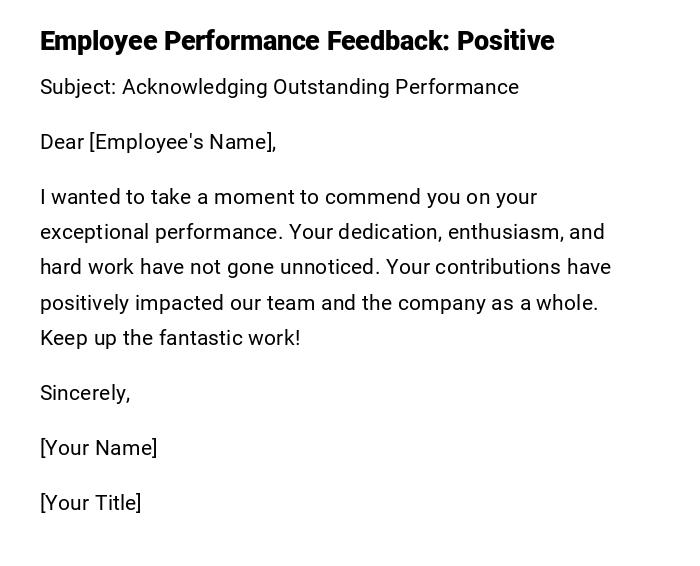
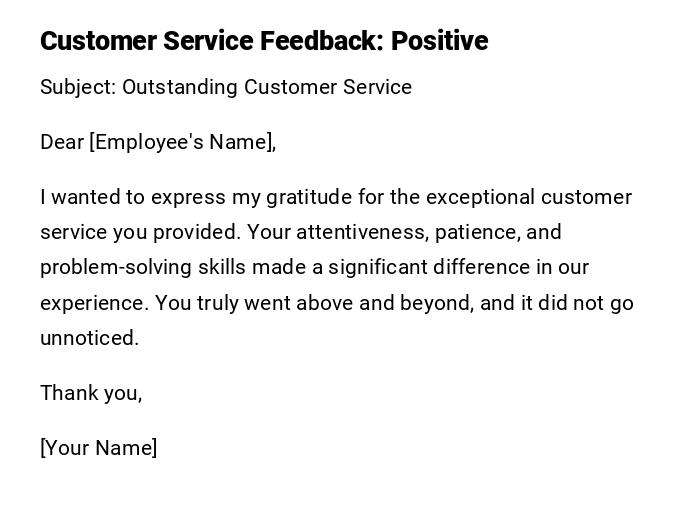
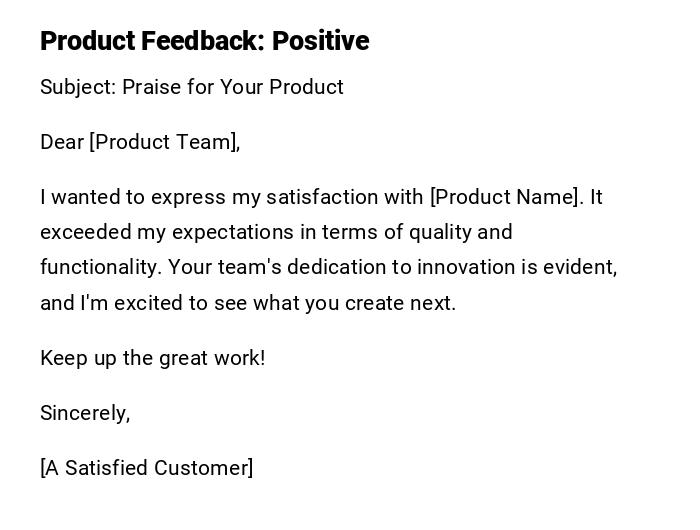
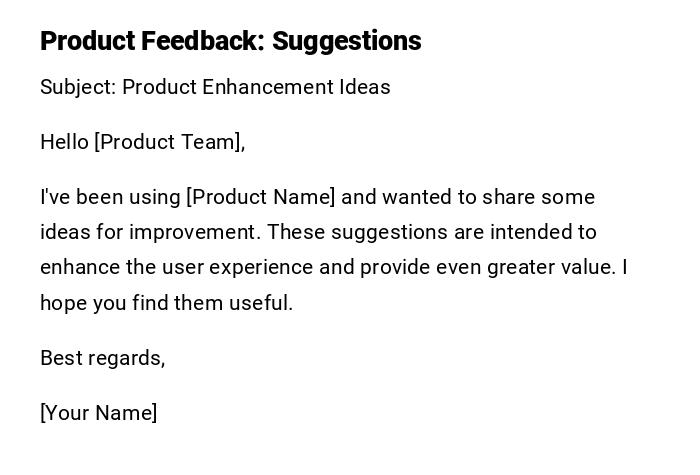
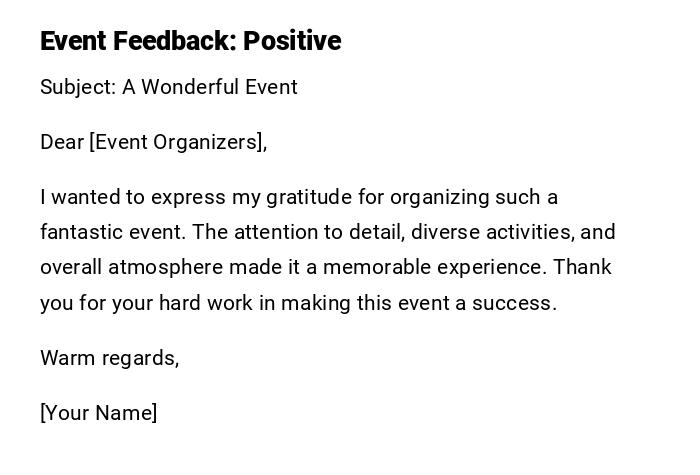
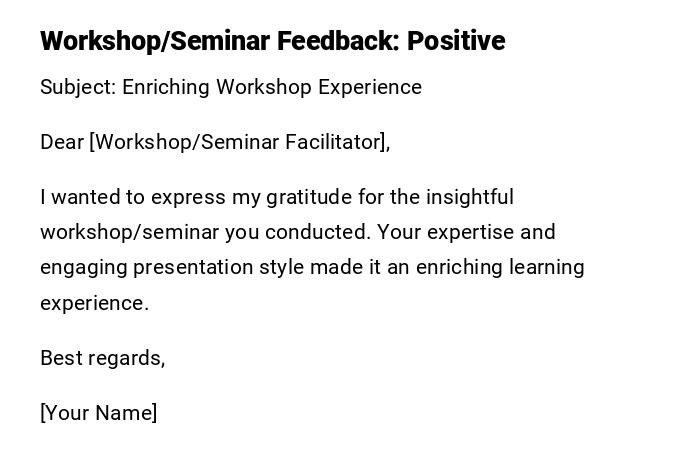
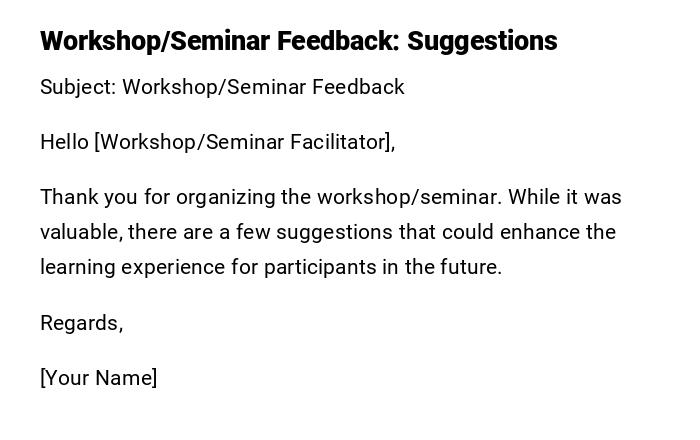
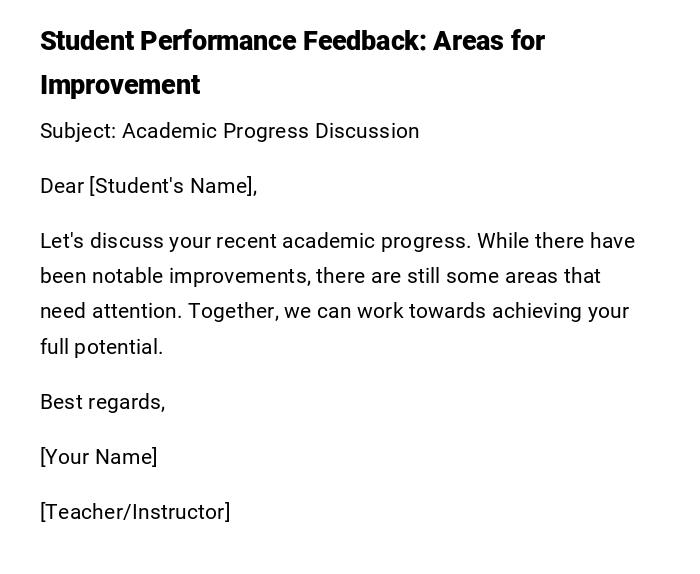
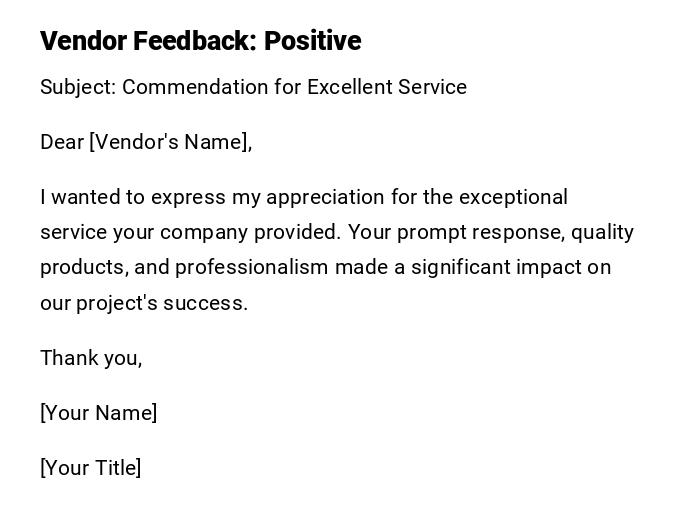
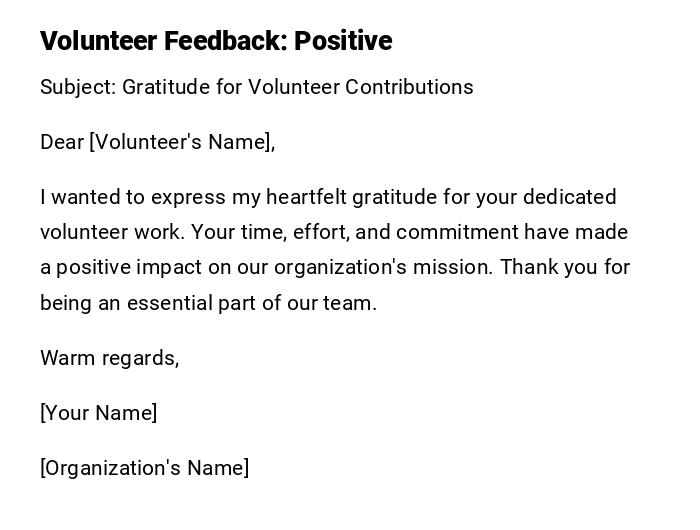
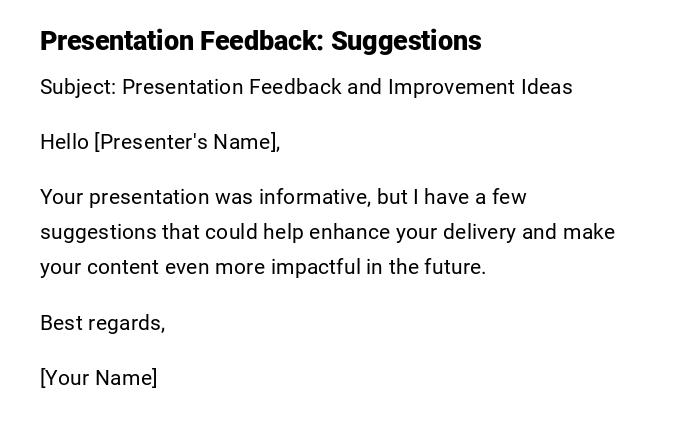
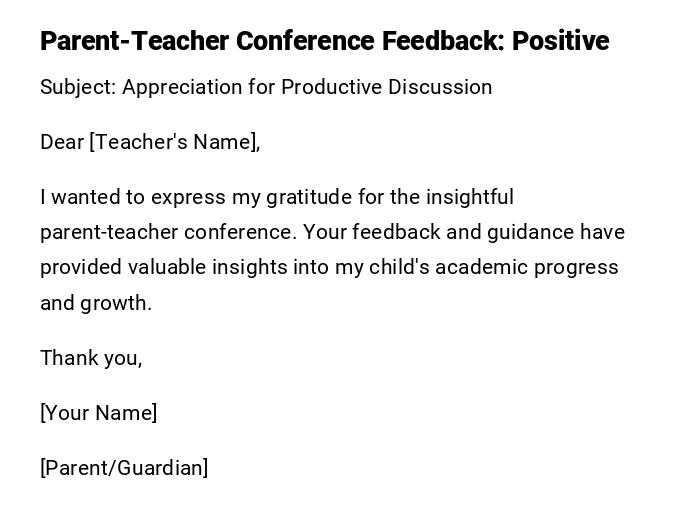
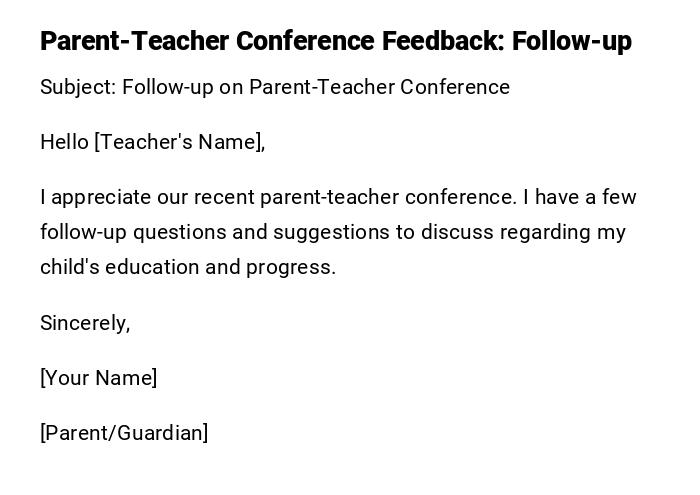
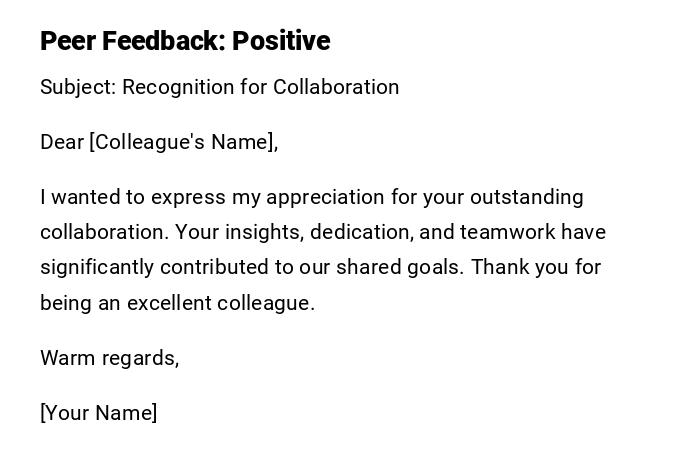
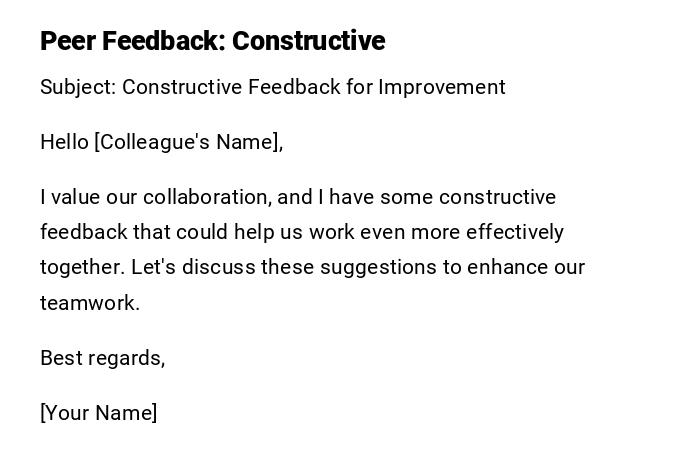
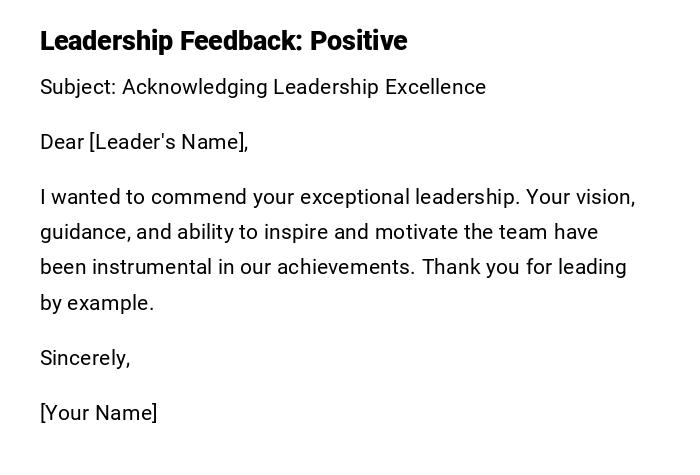
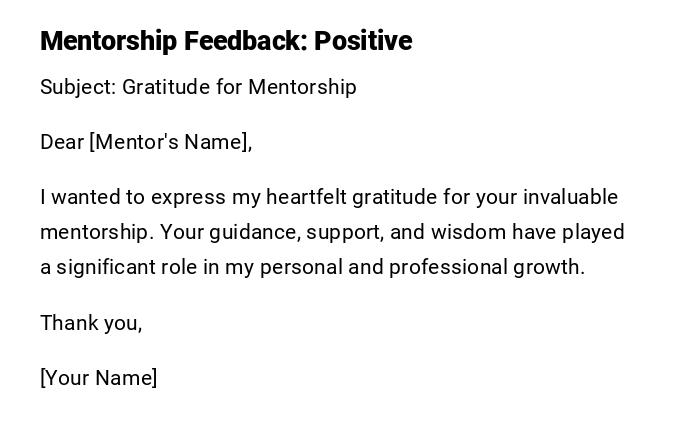
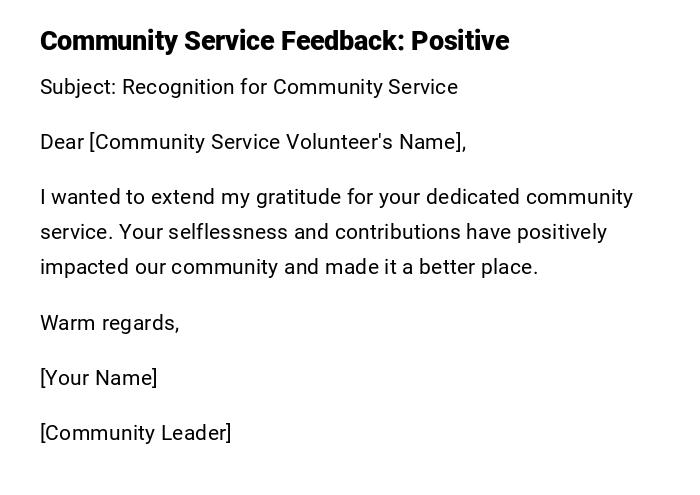
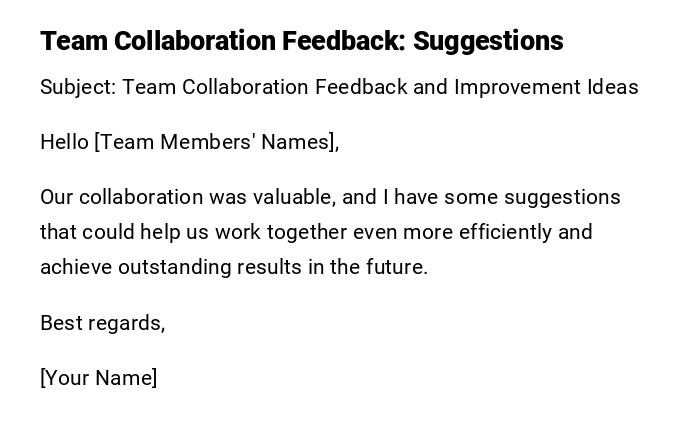
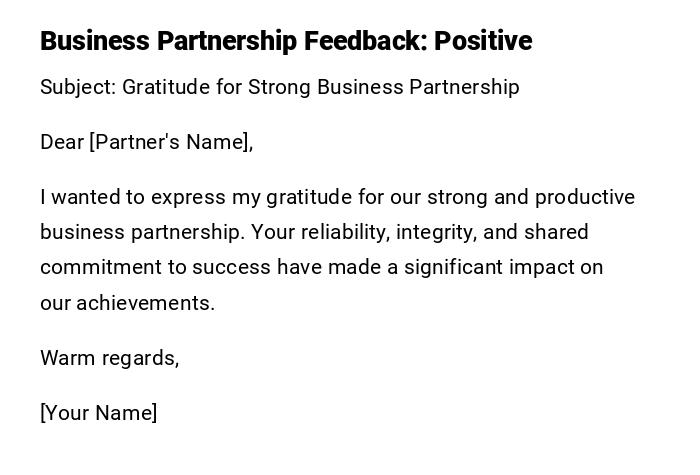
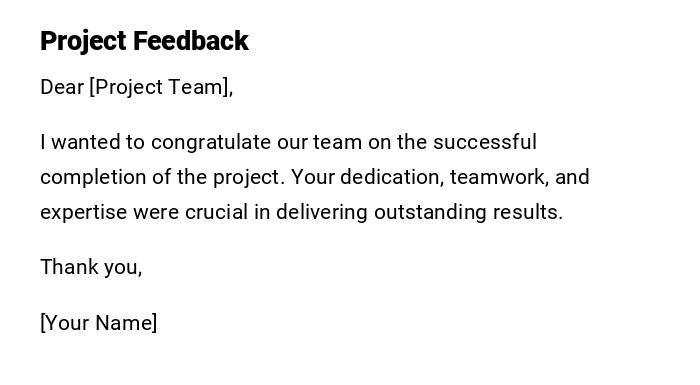
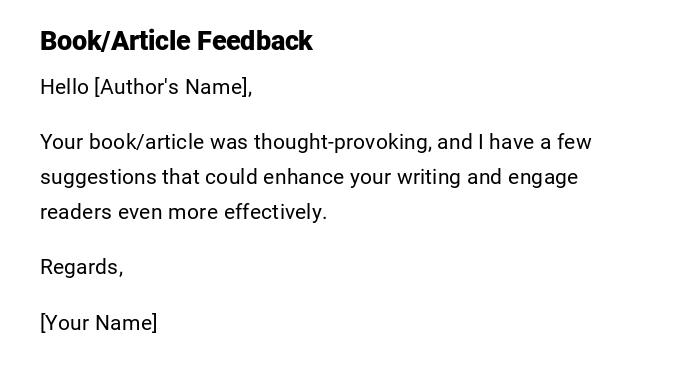
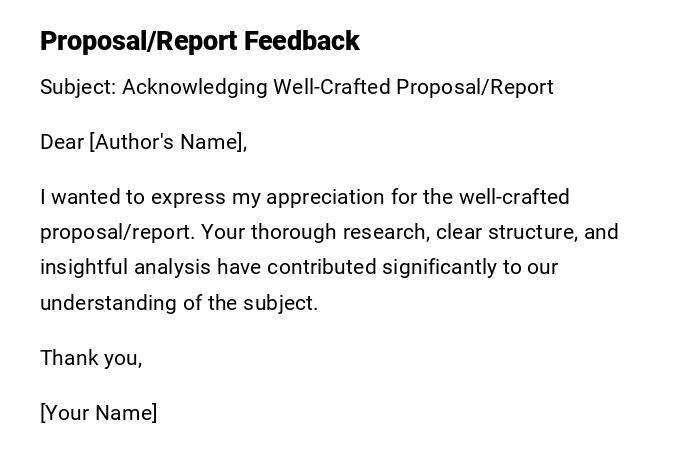
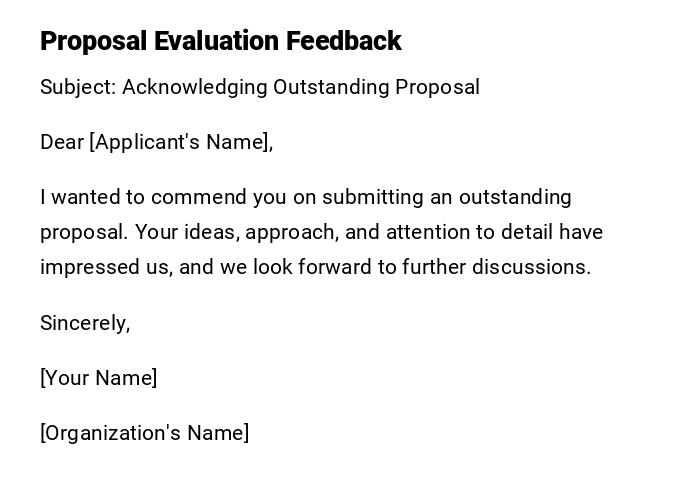
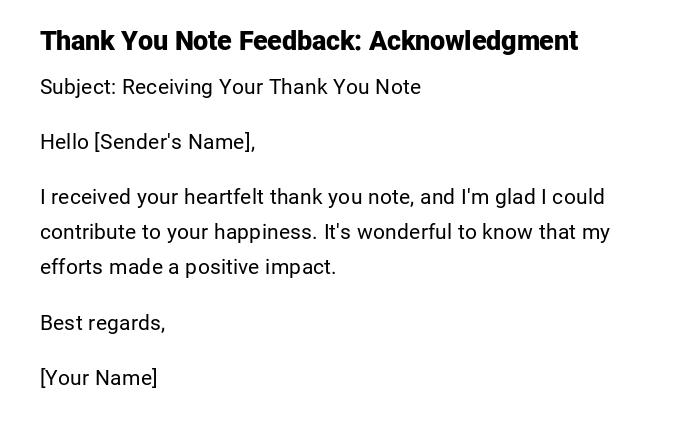
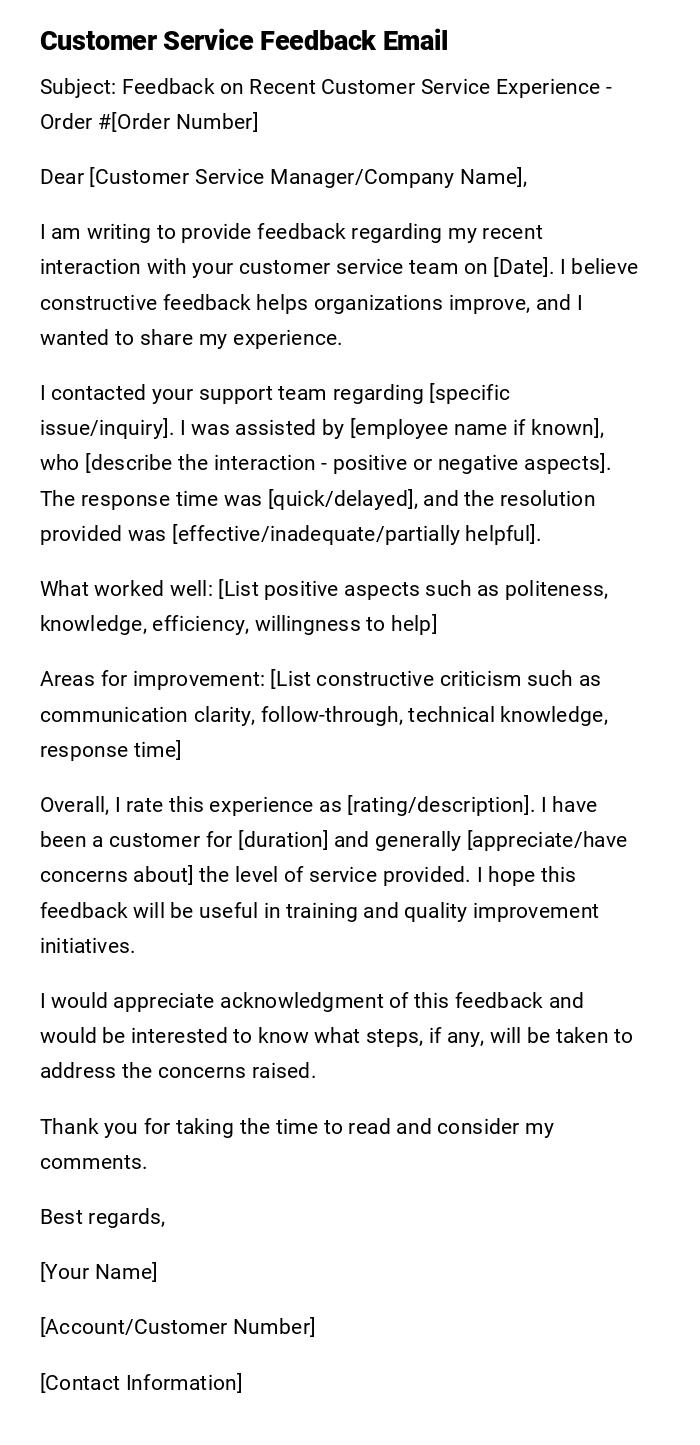
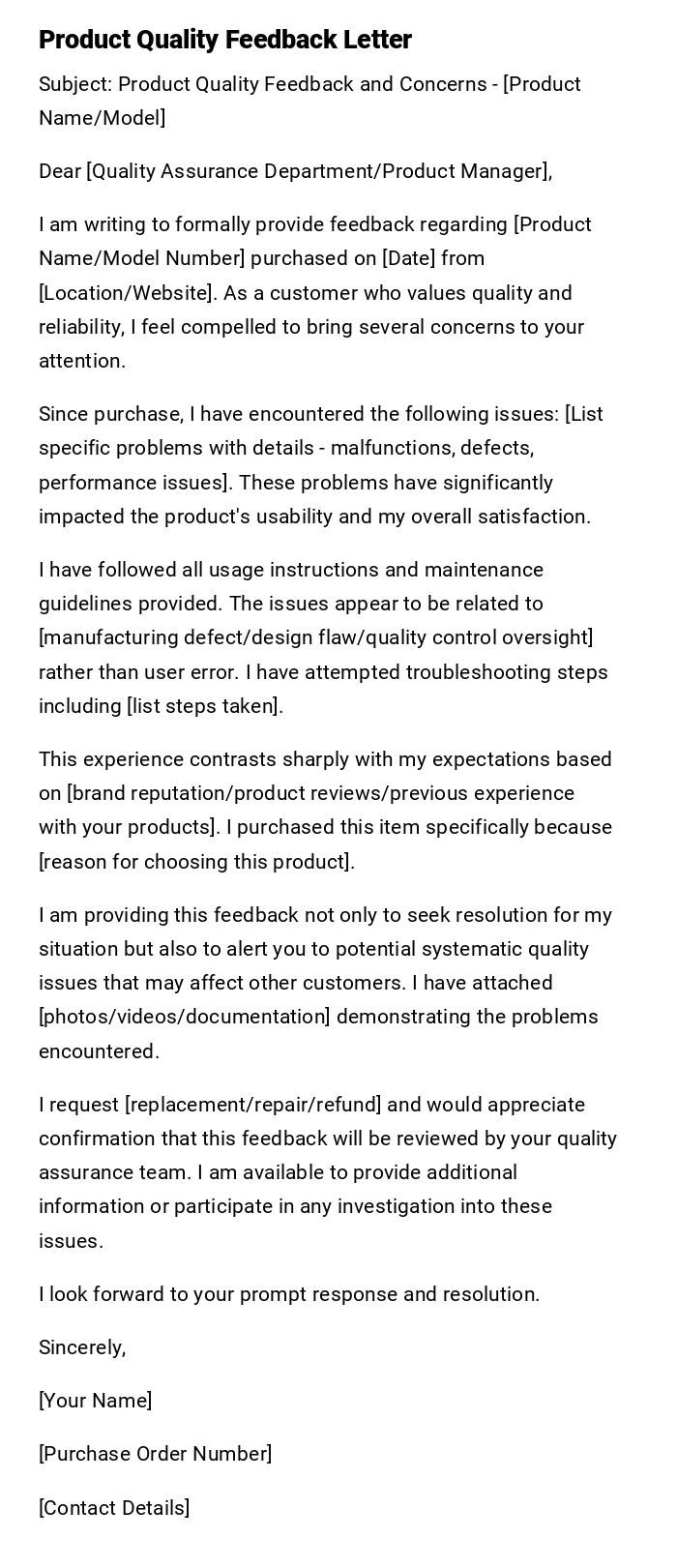
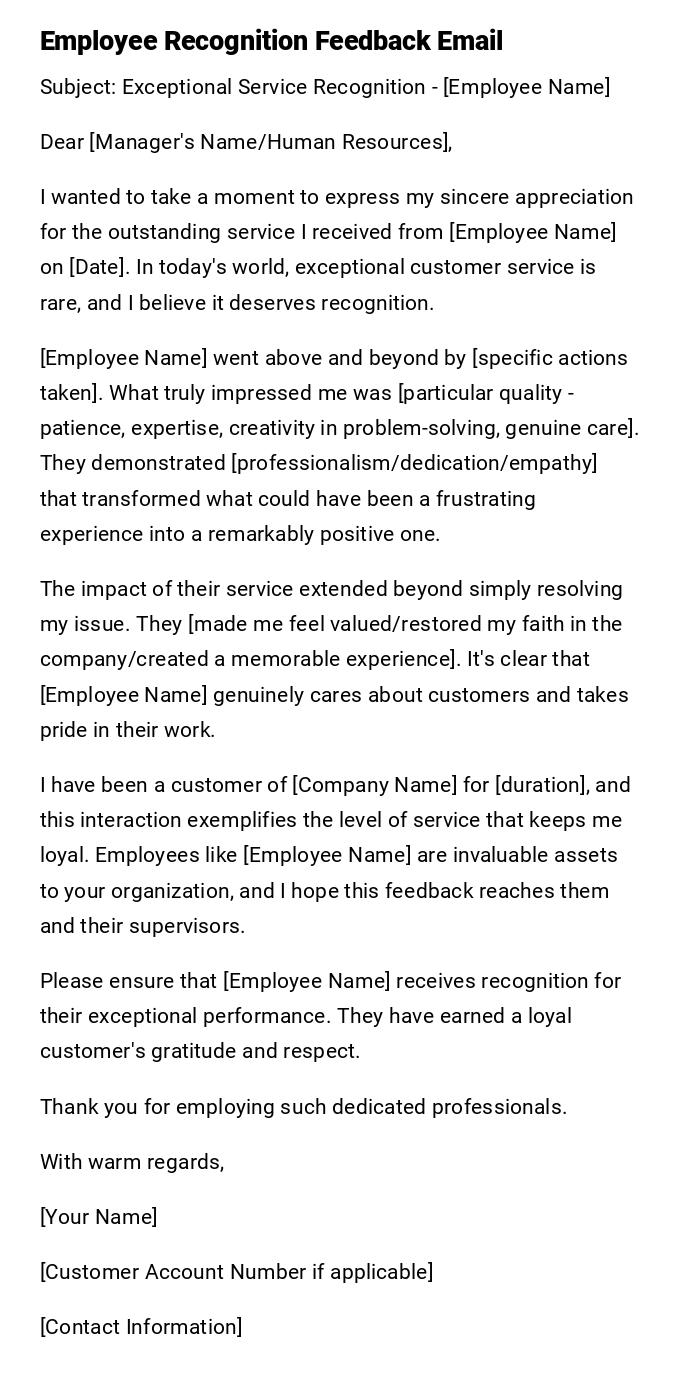
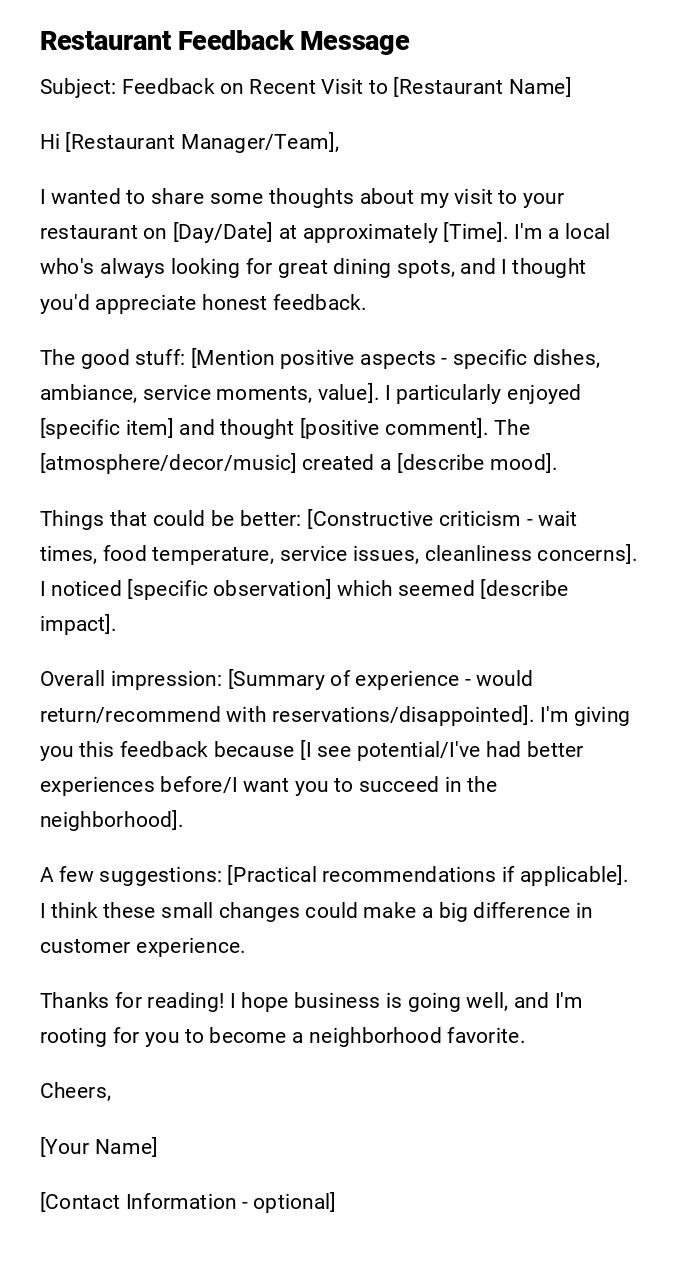
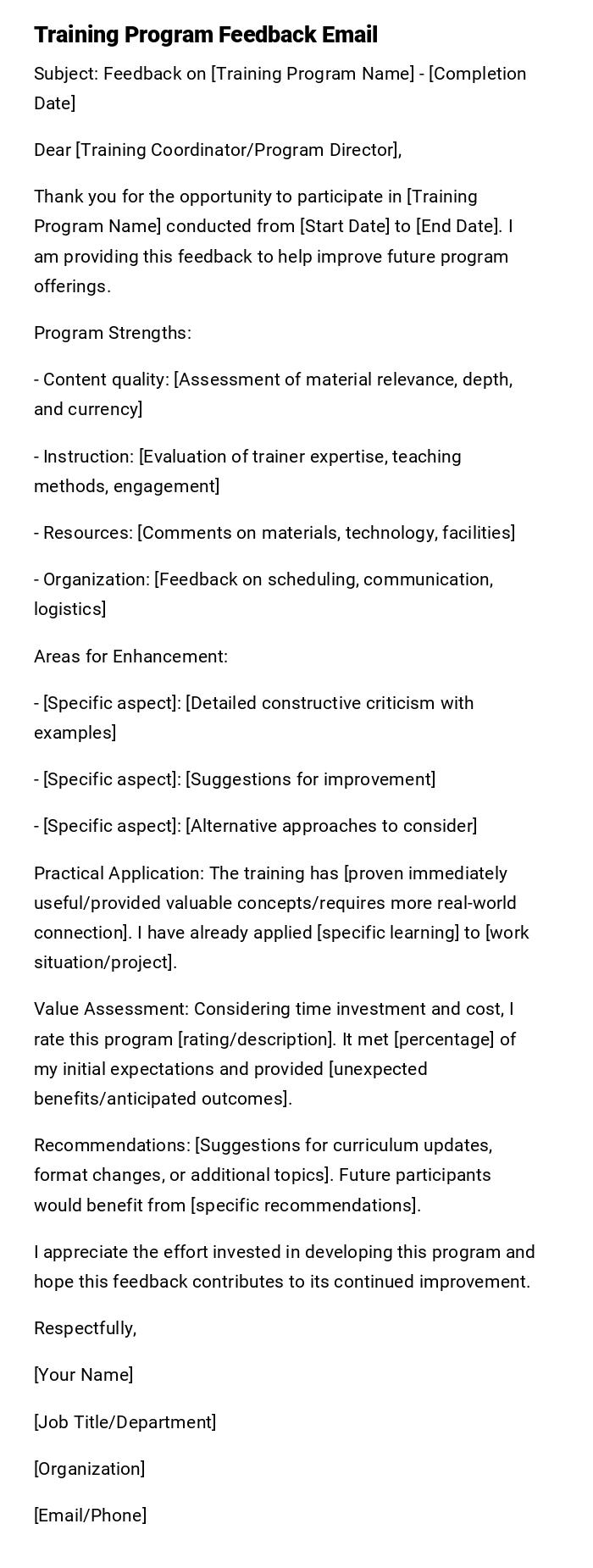
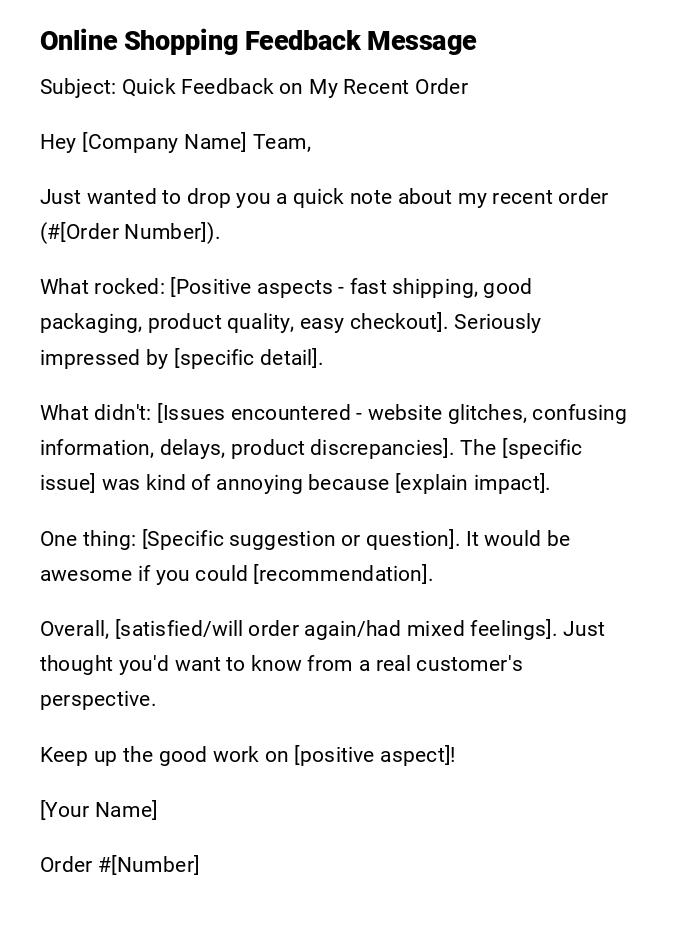
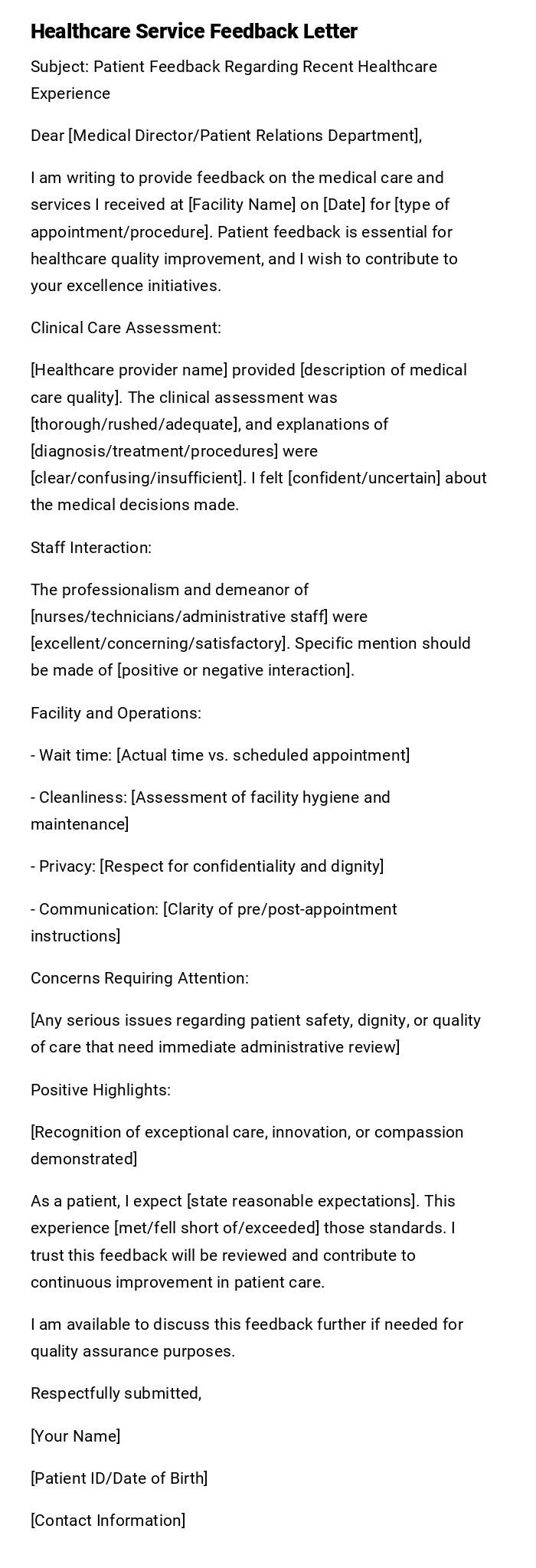

Feedback Letter After Training
Feedback Letter For Teacher
Feedback Letter To Company
Feedback Letter To Manager
Feedback Letter To School
How To Write Positive Or Good Feedback
Interview Feedback Letter
Job Feedback Letter
Letter Asking For Feedback
Thank You Appreciation Letter For Feedback

 Download Word Doc
Download Word Doc
 Download PDF
Download PDF